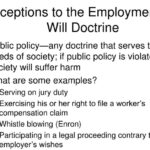Long-term disability (LTD) insurance can be a lifeline for individuals who can no longer work due to a serious health condition. However, the impact on health insurance coverage during this time is often a hidden concern.
Navigating the complexities of maintaining health insurance while on Social Security Disability Insurance (SSDI) or long-term disability can be daunting. This comprehensive guide will explore the various options and legal considerations to ensure continuous medical coverage during a debilitating illness or injury.
What is Long-Term Disability?
Long-term disability refers to a prolonged inability to work due to a severe, ongoing health condition. This can include physical disabilities, chronic illnesses, or mental health challenges that prevent an individual from performing their job duties. LTD insurance is designed to replace a portion of the policyholder’s income, typically 50-70%, to help them manage expenses during this difficult time.
How Long-Term Disability Affects Health Insurance Coverage
While long-term disability itself does not directly impact health insurance coverage, the changes in employment status can. Some employers may continue to provide insurance benefits for employees on LTD, while others may terminate coverage.
This can leave individuals facing the potential loss of their employer-sponsored health insurance and the need to explore alternative options, such as COBRA continuation coverage or plans on the Insurance Marketplace.
Employer-Sponsored Health Insurance and Long-Term Disability
Employer-sponsored insurance can be a significant benefit for individuals on long-term disability, providing stability and often lower premiums due to group rates. However, this coverage may also come with limitations that must be considered.
Benefits of Employer-Sponsored Health Insurance

When an employee goes on long-term disability, the continuity of their insurance coverage through their employer can be a crucial factor. Employer-sponsored health plans typically offer more comprehensive benefits and lower out-of-pocket costs compared to individual market plans. This can be especially beneficial for individuals managing complex medical needs during their disability.
Limitations of Employer-Sponsored Health Insurance During LTD
Despite the advantages, employer-sponsored health insurance during long-term disability is not without its limitations. Coverage may cease if the employer terminates the plan or the employee is no longer considered an active employee. In such cases, individuals may need to explore alternative options, such as COBRA continuation coverage or plans available through the Insurance Marketplace.
Read This Blog: How to Cancel Rocket Money: The Ultimate Guide for 2024
Government Programs and Long-Term Disability Health Insurance
Government programs play a vital role in supporting individuals with long-term disabilities by providing access to insurance coverage and other essential benefits.
Medicare and Long-Term Disability
One of the primary government programs that can assist individuals on long-term disability is Medicare. Eligible recipients of Social Security Disability Insurance (SSDI) can access Medicare coverage after a waiting period, typically 24 months. This program helps cover the cost of hospital stays, outpatient care, and prescription drugs, providing a crucial safety net for those unable to work.
Affordable Care Act (ACA) and Long-Term Disability
The Affordable Care Act (ACA) has also expanded options for individuals on long-term disability to obtain insurance coverage. The Health Insurance Marketplace established by the ACA offers a range of plans with varying levels of coverage and costs, often with the assistance of subsidies to make premiums more affordable.
Other Government Initiatives Supporting LTD Health Insurance
In addition to Medicare and the Affordable Care Act, there are other government programs and initiatives that can provide support for insurance costs during long-term disability. These include Medicaid eligibility for individuals with limited income and resources, as well as state-based programs that may offer additional assistance.
Also read: Jones Church Loans: Revolutionizing Faith-Based Financing in 2024
Legal Considerations for Long-Term Disability Health Insurance

When navigating the complexities of insurance during long-term disability, understanding one’s legal rights and the role of legal representation can be crucial.
Understanding ERISA and LTD Insurance Appeals
Many long-term disability plans are subject to the Employee Retirement Income Security Act (ERISA), which governs the appeals process for denied claims. Seeking legal counsel can help individuals effectively navigate this process and ensure they receive the benefits they are entitled to.
Seeking Legal Representation for LTD Health Insurance Issues
In cases where long-term disability claims are denied or benefits are discontinued, having legal representation can make a significant difference. Attorneys specializing in disability law can advocate for individuals, helping them understand their rights and options, and ensuring they receive the necessary medical coverage and disability benefits.
Common Challenges and Considerations for LTD Health Insurance
Individuals on long-term disability may face various challenges when it comes to maintaining insurance coverage. These can include managing out-of-pocket costs, understanding plan limitations, and ensuring consistent coverage terms. Proactive planning and seeking expert guidance can help mitigate these issues and provide a smoother transition during this difficult time.
FAQ
What happens to my health insurance if I go on long-term disability?
The impact on your insurance coverage during long-term disability depends on your employment status and the specific policies of your employer. If your employer continues to provide insurance benefits, you may be able to maintain your coverage with little disruption. However, if your employer terminates your coverage, you may need to explore options such as COBRA continuation coverage or plans available through the Insurance Marketplace.
Who pays for my health insurance while on long-term disability?
The responsibility for paying insurance premiums during long-term disability can vary. If you are able to maintain your employer-sponsored health insurance, your employer may continue to contribute towards the premium costs.
However, if you need to seek coverage through COBRA or the Insurance Marketplace, you will typically be responsible for the full premium amount. Government programs like Medicare and Medicaid may also provide insurance assistance for eligible individuals.
How long can I stay on my employer’s health insurance plan during long-term disability?
The duration of employer-sponsored health insurance coverage during long-term disability can vary depending on the specific policies and regulations. In many cases, COBRA continuation coverage allows individuals to extend their employer-sponsored insurance for up to 18 months after the loss of their job or reduction in work hours.
Conclusion
Navigating the complexities of health insurance during long-term disability is a crucial challenge that individuals often face. However, by understanding the available options, exploring government programs, and seeking legal guidance, it is possible to maintain continuous medical coverage and access the necessary support.
Whether it’s employer-sponsored health insurance, COBRA, the Insurance Marketplace, or Medicare, there are solutions to ensure individuals on long-term disability can focus on their recovery without the added burden of healthcare concerns.







